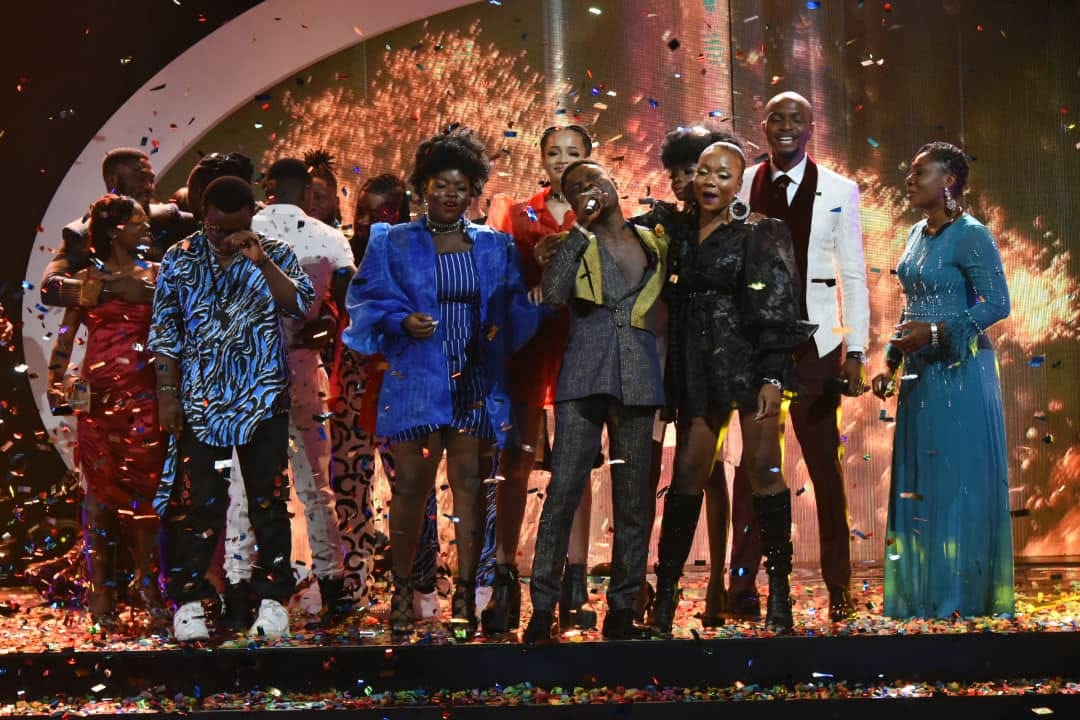Nigerian Idol: How to Discover A Nigerian Star
The 6th edition of the Nigerian Idols came prepared to discover Nigerian stars. Have the judges delivered?
When African music mogul, Obi Asika took the gig to be a first-time job at the local reality TV show, Nigerian Idol, he knew he was in for anything and everything. Paired alongside Nigerian disc jockey, Sose and Afrobeats musician Seyi Shay, he and the others have seen it all. From sieving through a multitude of applicants, to getting caned on social media, to investing emotionally in the talents, it’s been a rollercoaster of a gig.
But it’s an important one. A job that bestows on him and his colleagues, the sacred power of discovering, grooming and elevating music talent in Nigeria. All in the full glare of the public. There are no spaces to hide. No insulating crevice to crawl into when things get misunderstood. Just professionals under the microscope, showing heart and great judgement to extract value and entertainment. “When I was first approached, I actually said no probably like twice, because I've really never been an on-air talent,” Obi Asika says. We’re in the green room of the MultiChoice office on a Lagos Sunday afternoon. In one corner of the building, contestants were buzzing with hair and makeup, prepping for the live show which comes on in a few hours.
“I've spent my life making talents,” Asika continued. “I mean, I've produced hundreds of these kinds of shows, and obviously, having had a label for many years and being involved in developing and promoting talent way beyond my label, involved in driving a movement. I wasn't necessarily sure that I needed to be on the show, but then, they came back a couple of weeks or months later and by that time, I was already like maybe I should just do this thing and have fun with it.”
Now in its 6th season, the Nigerian Idol platform provides a launchpad for young, talented Nigerians to achieve their dreams in music on the local and global stage. Created by MultiChoice, the show seeks talented Nigerians from all over the country. Savvy judges and professionals take these contestants on training and coaching sessions to improve their craft. The live shows broadcast their talents to millions of viewers, amplifying their skills and personalities. The aim here is to be a conduit for discovering and ushering superb talents in the music industry. According to MultiChoice, over 3,600 young Nigerians auditioned to be on the show this season.
Hosted by the much-loved media man, IK Osakioduwa, with superstar singer Seyi Shay, creative entrepreneur, Obi Asika and celebrity DJ, Sose as the Judges. The eventual winner of this season’s show—Kingdom Kroseide— walked away with a recording deal of a six track EP, with music video shoots for three of the songs, and over 50 million Naira worth of prizes, which include a N30 million cash prize and a brand new SUV.
First premiering in March, the show started off by transparently showing the varying levels of talent. Nigeria is home to a population that boasts 70% young people. Nigeria’s entertainment industry is one of the fastest growing entertainment industries on the globe. The industry was worth $3.6 billion in 2016, and is projected to be worth $6.4 billion by 2021. This growth potential is credited to a myriad of factors including the size and relative youth of Nigeria’s population and the steady rise in mobile internet access.
Young people consider the entertainment industry as a viable means of employment and self-actualisation. Due to a low barrier of entry, access to the game transcends social-economic class, and there are demonstrable examples of how it routinely moves people up society’s ladder. Young kids leave the ghetto with a hit record, pick their family from the claws of poverty, and never go back.
Shows like this provide that crucial access. It can be the difference between a life at a bank job, and another that elevates your artistry, puts you on the path to profitability, and a career as a superstar, doing the things you love. The judges hold access to these spaces. It’s a tough job to do. How do you look a man in the eye and tell him he isn’t adequate for the big stage? How do you speak the truth, even though it’s unpleasant, and will crush a talent’s spirit?
To do that is to pass judgement. And as any Nigerian will tell you, as you judge, you get judged back. For Sose, that judgement dogged him at the start. “At first, people were like—in my case—what does the DJ know? What can he actually bring to the table? What has he got to say? Can he even sing?” he recalls. But that didn’t last long, he says. And that’s because “As the time rolled on when I started getting technical about music. And how particular artists can be moulded and what have you, people were starting to see. Like, "Okay. Maybe this guy even know wetin he dey talk, and that's one of the reasons why they put him there."
Afrobeats musician Seyi Shay has had the worst of it. In March, she faced a backlash on social media after clips of her comments to a particularly poor contestant went viral. She received insults, her career came under scrutiny, and her music was slated. “I’ve been as straightforward as I can be. I’m not here to sugarcoat or pat you on the back if you slip up. You best come correct or don’t come at all,” she says, emailing from her home in Lagos.
This year’s edition of the Nigerian Idol featured a multi-step format. After 4 weeks of auditions, 68 initial contestants made it into a two-week period known as ‘Theatre Week.’ Here all the selected singers worked in groups and showcased their abilities to the judges. At the end of that process, 11 people made the final cut. The format switched up to live shows. Here, each performer showcases their skills to millions of viewers every Sunday, after spending the week working on their craft. Fan-based elimination voting rounds whittled that number to two strong contestants — Frank and Kingdom. Kingdom eventually won, beating everyone with unparalleled artistry.
Obi Asika has sat through performances each week and watched the public pick their favourites by rallying around them. Fans have conducted concerted voting campaigns, influencer marketing and other methods to give their idol a shot. For Asika, while the public focuses on rallying enough votes to sustain a candidate, the music remains the central draw. “I'm interested in the performance of the person on the day, period. It's not a popularity contest. It's a singing contest. Some people get through because they bring emotion to the performance, not because they are the best singer. That's just the truth of the matter,” he says.
Asika continues: “Some people that were the best singers froze on particular days. It happens. They are human. Pressure bursts pipes. What happens with these shows is whoever is supposed to be there at the end is there at the end. That's just the reality, because somewhere somehow, they are getting millions of votes. If they are getting millions of votes, you can't blame the judge for that, you are going to blame the people who are voting. We don't even have a vote. So, we brought out these talents to the public, and people get emotional; "This person shouldn't even be there.", "That person should have stayed." Did you vote for the person? Did you actually vote for the person you wanted to stay? Most times, people don't vote, they just talk. Guess what? Talk is cheap.”
The penultimate week of the Nigerian Idol show recorded 11 million votes. The final two contestants, Francis and Kingdom went head to head for the crown on Sunday, July 11. It was a fitting finale to a hugely successful show, packed with highlights and many moments to cherish. Via the live shows, and social media campaigns, contestants have generated buzz for their individual music careers. For an artist, that’s the foundation of what is needed. Attention on your music, lights on your skill, and external validation for your efforts. For the judges, everyone has already won at some level. Reality TV show isn’t a guarantee of stardom. Neither does it make you successful in the real world. But it does provide tools for more people to take a stronger shot at their dreams.

“It's giving them a bigger platform. The issue about it now is, how do they transit? If they get the right songs, the right producers, and the marketplace is feeling them, there's no reason why you can't get a breakout superstar, but you know they have to work, they have to stay humble. Some people believe that they are superstars already. They've done nothing. They've just been on a reality show. So, it's all about that. The most humble superstar in the game is called 2Face. I know kids who might be on this show now and have a big attitude. We don't have time for people with attitude. I'll just tell you the truth. The industry? Nobody has the energy, nobody has the time. If you come in with an attitude, you are going to be moved to the side, because there are a thousand other people with talent,” Obi Asika says.
Seyi Shay believes the judges have delivered on the promise of the reality TV show format. “I love what the Idols have been doing so far. The franchise is a beautiful, great concept. I think we need more of this here, especially in terms of filtration and coaching the raw talent out there to become something we ourselves can be super proud of and showcase to the world,” she says.







This is brilliantly written Joey. I always love reading you.
I believe kingdom has the talents to break into the industry. I just hope he gets the right sound and hands to help push his talent to Nigerians.